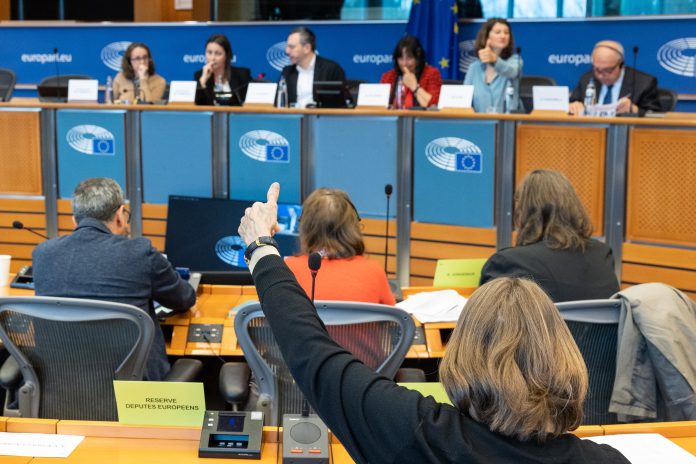The Legal Affairs Committee agreed on Tuesday on new rules to integrate human rights and environmental impact into companies’ governance.
With 19 votes against 3 and 3 abstentions, MEPs on the Legal Affairs Committee adopted their position on so-called corporate sustainability due diligence. Firms would be obliged to identify, and where necessary prevent, end or mitigate the negative impact of their activities, including that of their business partners, on human rights and the environment. This includes child labour, slavery, labour exploitation, pollution, environmental degradation and biodiversity loss.
More firms to be liable for impact on human rights and environment
Companies would also be required to evaluate their value-chain partners when carrying out their “due diligence”, MEPs say. This should include not only suppliers, but also activities related to sale, distribution and transport. Adverse impact would have to be mitigated and remedied by adapting the company’s business model, providing support to SMEs or seeking contractual assurances.
MEPs extended the application of the new rules, compared to the Commission proposal, to include EU-based companies with more than 250 employees and a worldwide turnover higher than 40 million euro, as well as parent companies over 500 employees and a worldwide turnover higher than 150 million euro. The rules would also apply to non-EU companies with a turnover higher than 150 million euro if at least 40 million was generated in the EU.
Supervision, sanctions and detailed guidelines
Non-compliant companies should be liable for damages and EU governments would establish supervisory authorities with the power to impose sanctions. MEPs want fines to be at least 5% of the net worldwide turnover and to ban non-compliant third-country companies from public procurement.
To facilitate compliance, member states would set up a national helpdesk and the Commission would prepare detailed guidelines.
Communication and fighting climate change
According to the adopted text, companies would have to engage with people affected by their actions, including human rights defenders and environmental activists, introduce a grievance mechanism and monitor the effectiveness of their due diligence policy.
To help combat climate change, all company directors would be obliged to implement a transition plan compatible with a global warming limit of 1.5°C. Directors of companies with over 1000 employees will be directly responsible for this step, which in turn will affect the variable parts of their pay, such as bonuses.
Following the committee vote, rapporteur Lara Wolters (S&D, NL) noted: “I’m delighted that a broad consensus has been achieved in the committee to put forward binding rules to make business respect people and planet. There is a clear will to align this directive with international best practices, and to ensure companies must do due diligence in continuous dialogue with those affected by harm, and remedying it when it occurs. If companies don’t comply, they should face sanctions, and if harm occurs that they should have avoided, then victims should be able to get justice in court.”
The European Parliament has consistently called for mandatory due diligence legislation. The European Commission introduced its proposal to foster sustainable corporate behaviour on 23 February 2022.
Once the Parliament adopts its mandate in the plenary, the negotiations with the Council on the final text of the legislation can start. According to the committee’s proposal, the new obligations would apply after 3 or 4 years depending on the company’s size and turnover.

